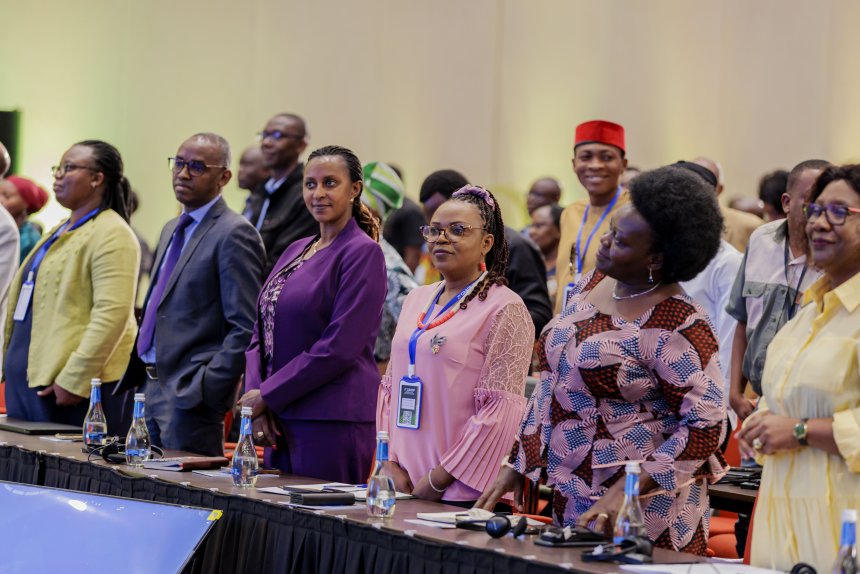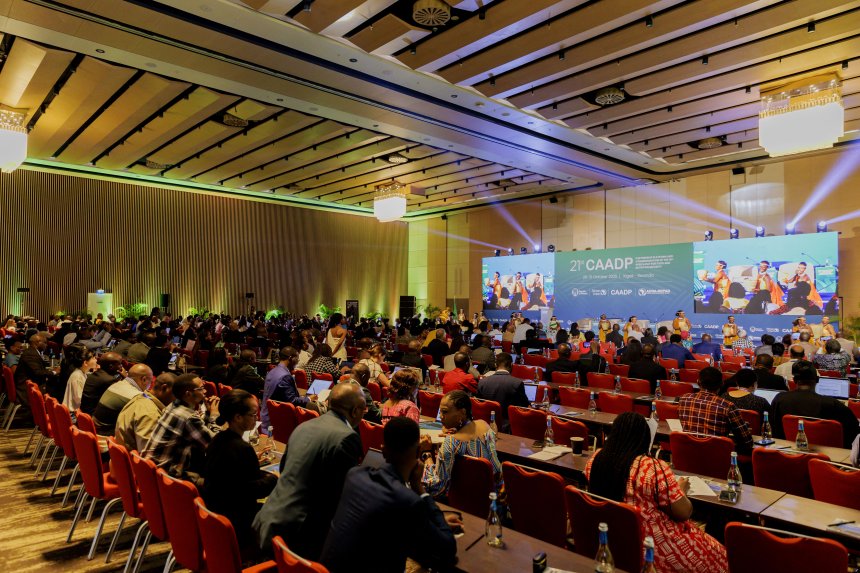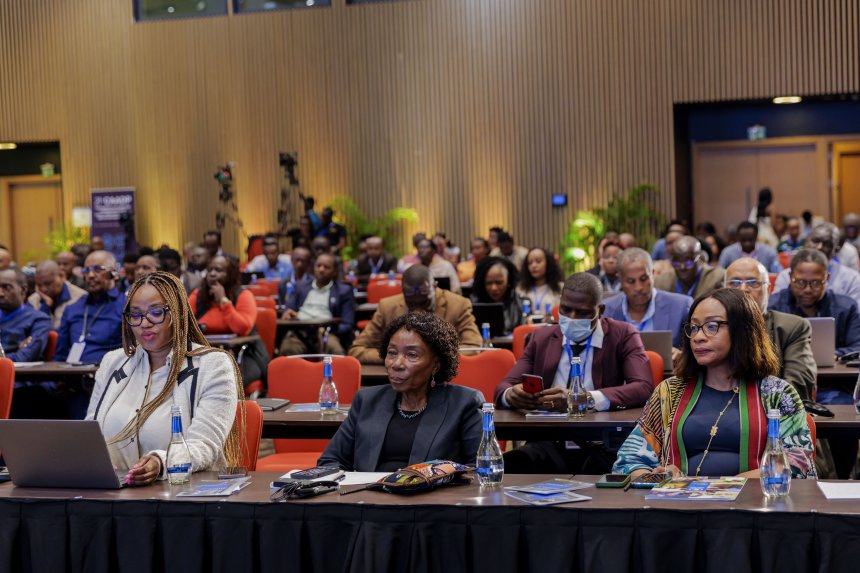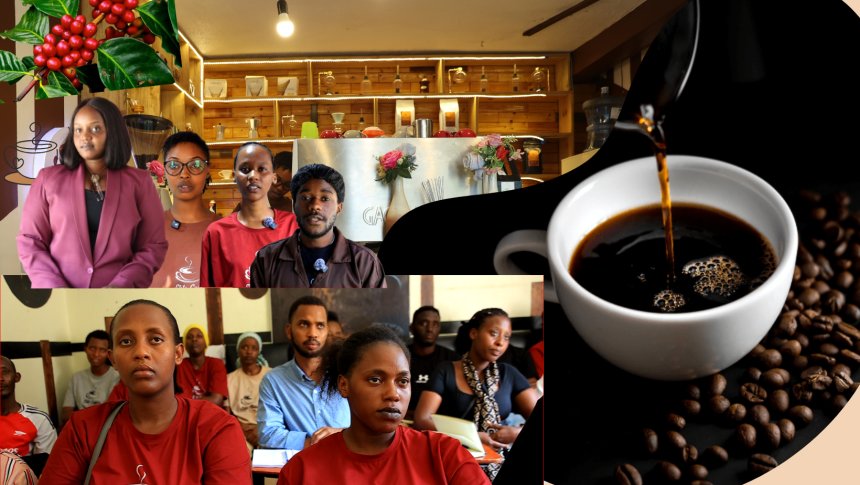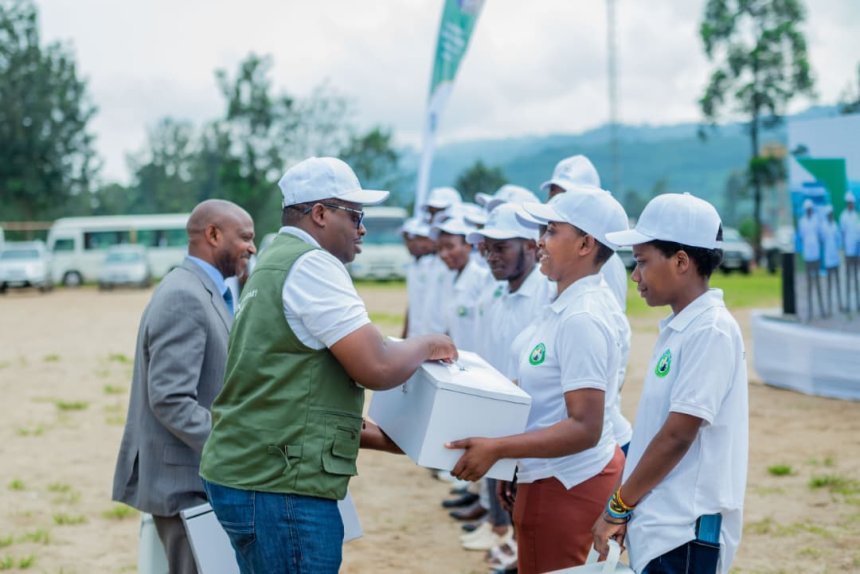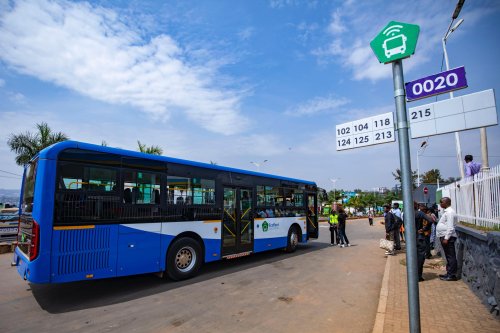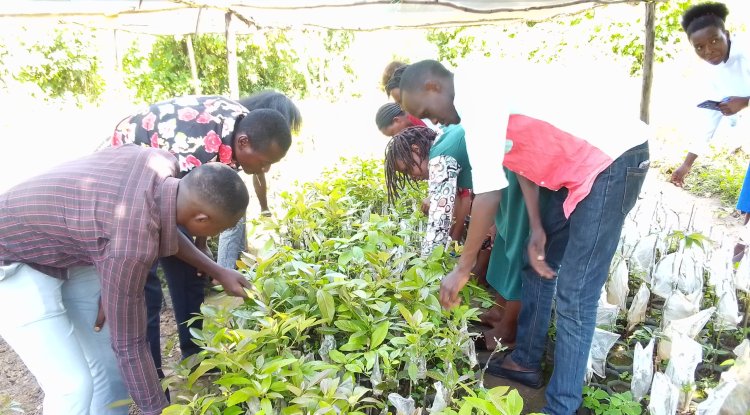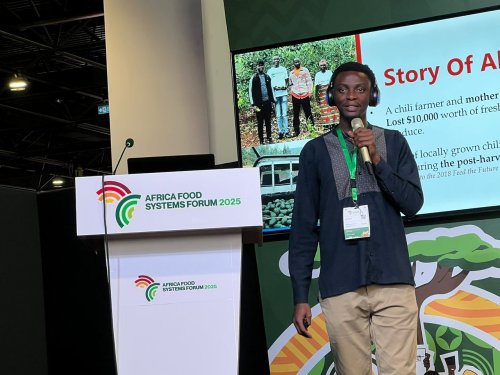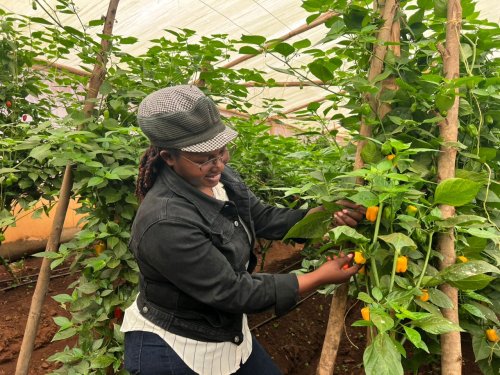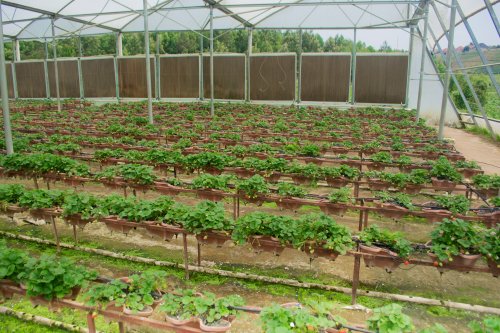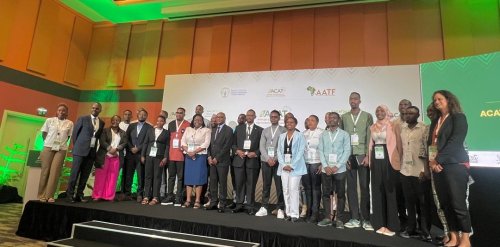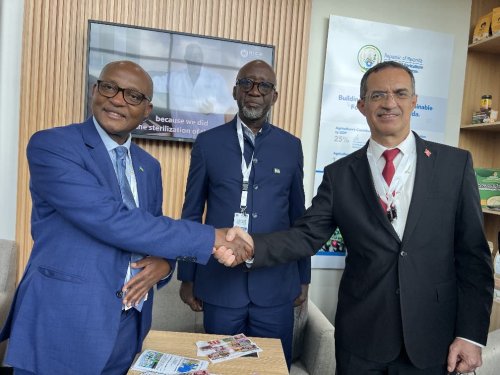Unlocking the Power of Youth Agripreneurs: Africa’s Pathway to a Resilient Agri-food Future
Day 2 of the 21st CAADP Partnership Platform and the 16th Africa Day for Food and Nutrition Security placed the youth at the center of Africa’s agricultural transformation. Under the theme “Unlocking the Power of Youth Agripreneurs: Policy, Mentorship, and Innovation for Africa’s Agri-food Transformation,” participants explored how Africa’s young innovators can drive inclusive growth, climate resilience, and sustainable food systems.
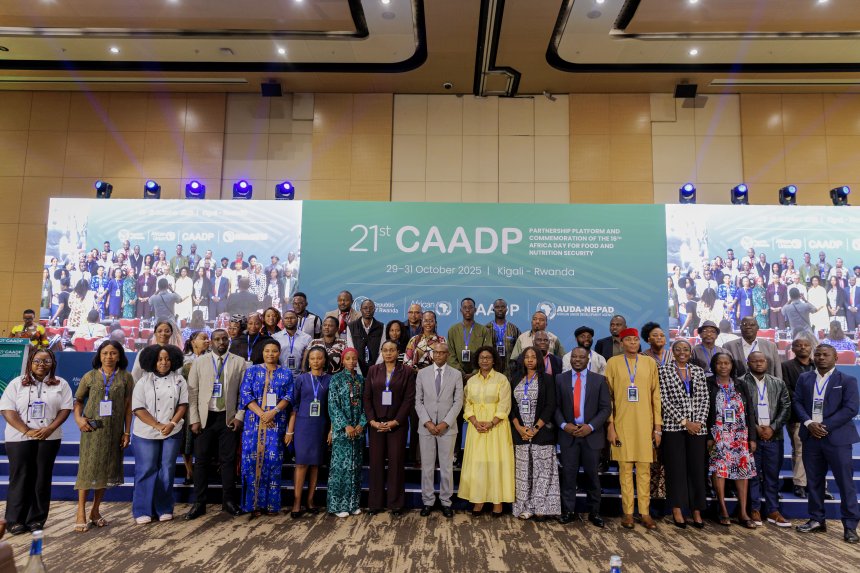
Young agripreneurs shared firsthand experiences about the persistent structural barriers that limit their potential in transforming Africa’s agri-food landscape.
Sakina Usengimana, a Rwandan youth agripreneur, highlighted the financial and systemic challenges that continue to constrain young farmers and agribusiness owners.
“Some of the challenges still affecting youth include fragmented supply chains and limited access to financing,” she said. “Most banks offer post-financing instead of pre-financing. Even if you are generating $200 million in cash flow, you can still fail to find $1 million because the banking system is built on collateral.”
She called for “smart partnerships” that value youth as equal players in Africa’s agribusiness ecosystem.
“People think the youth are small, but we are not small we are simply alone because no one wants to partner with young people,” Usengimana added. “We need win-win partnerships and inclusive investment models that address pre-financing, insurance, and digital credit scoring.”
Adding to the youth perspective, Cynthia Ndayishimiye, Operations Manager at JR Farms Rwanda, underlined the need for innovation and cross-border collaboration to integrate African farmers into global markets.
“We are working to bridge the gap between African agrarian production and global marketable products,” she explained. “Climate change has reduced production, so we are conducting research to develop climate-resilient seeds and promote irrigation.”
From a policy standpoint, Mrs. Estherine Fotabong, Director for Agriculture, Food Security, and Environmental Sustainability at AUDA-NEPAD, emphasized that Africa’s food transformation must go beyond yields to focus on nutrition, dignity, and justice.
“We cannot speak of development while millions of Africans face chronic hunger and malnutrition,” she said. “Achieving food security is not charity, it is justice.”
She underscored that 282 million Africans still go hungry, while nearly a billion people face some form of food insecurity.
“Africa imports food worth $50 billion every year while losing nearly 48% of its own harvests. This must change,” Fotabong noted. “By producing, eating, and trading what is truly ours, we strengthen our sovereignty and pride.”
Representing the African Union Commission, Dr. Janet Edeme, Acting Head of Agriculture and Food Security Division, reinforced the AU’s commitment to tackling hunger through evidence-based, nutrition-sensitive agriculture.
“Over 282 million Africans face hunger. These are not just statistics they represent mothers who skip meals and children who go to bed hungry,” she said.
Dr. Edeme presented key AU frameworks, including the Africa Regional Nutrition Strategy (2026–2035) and the Kampala Declaration on CAADP, as guiding tools for linking nutrition with agriculture, health, and education.
“Food security is not only about calories, it’s about dignity, equity, and the farmer who prospers,” she asserted. “We must act with urgency and unity to secure a nourished Africa where no one is left behind.”
Dr. Mark Cyubahiro Bagabe, Rwanda’s Minister of Agriculture and Animal Resources, urged African leaders to move from policy to practice, emphasizing that transformation will come from within the continent.
“Africa’s transformation will not be driven from outside, it will be built by Africans through partnership, innovation, and collective purpose,” he declared.
He highlighted the three key engines of Africa’s agricultural transformation: governments, farmers, and the private sector, each with a crucial role in aligning investment, productivity, and innovation.
“We must strengthen digitalization, AI-driven research, and data-based decision-making,” he said. “Healthy soils mean healthy diets, so we need a continental ‘Healthy Soils for Healthy Diets’ initiative.”
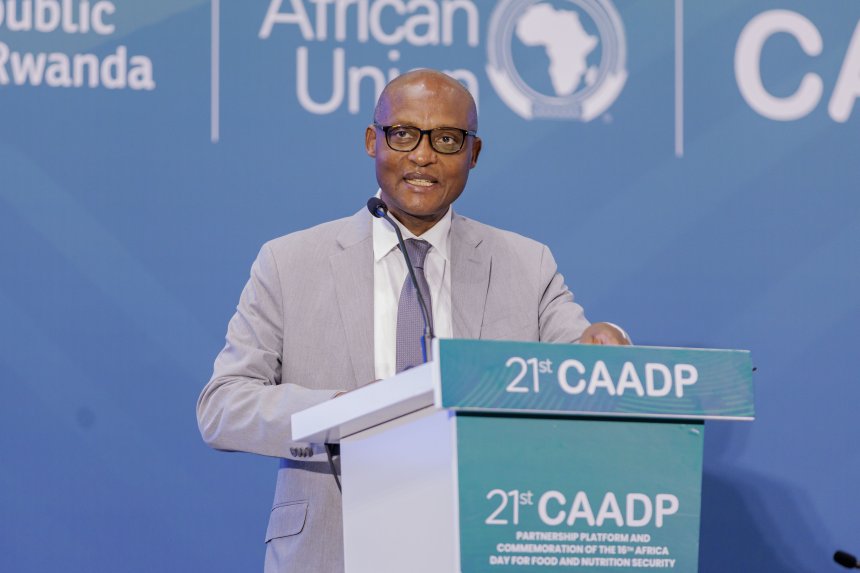 Minister Bagabe highlighted the key engines of Africa’s agricultural transformation
Minister Bagabe highlighted the key engines of Africa’s agricultural transformation
Dr. Bagabe also emphasized youth inclusion through Agri-preneurship Hubs that offer mentorship, incubation, and blended-finance models to de-risk youth-led innovations.
“Let Kigali be remembered as the place where Africa moved from statements to signatures, from concepts to contracts, and from pilots to scale,” he concluded, invoking President Kagame’s words: “Well-crafted ideas mean nothing if they remain just written in documents.”
The session concluded with a strong message: unlocking the potential of youth agripreneurs is not just an economic necessity, it is Africa’s greatest opportunity to build a resilient, inclusive, and nourished continent.
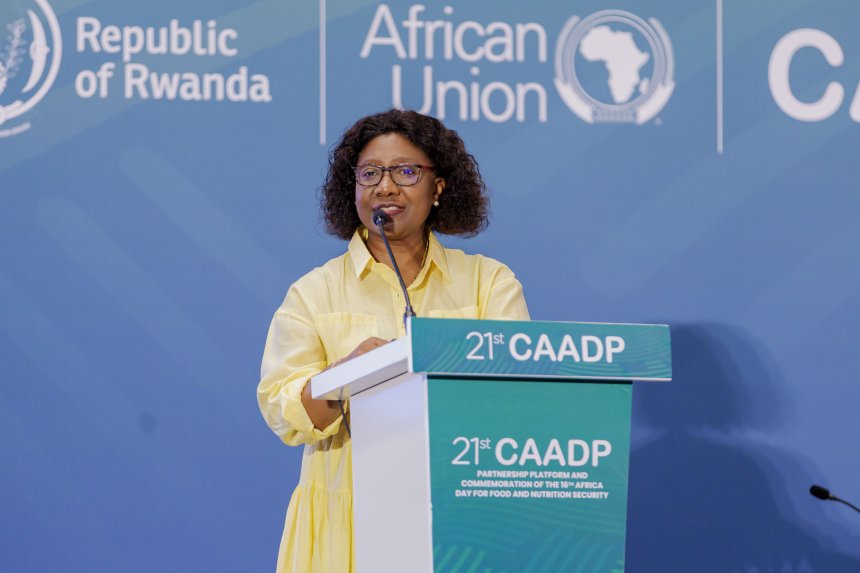 Mrs. Estherine Fotabong, Director for Agriculture, Food Security, and Environmental Sustainability at AUDA-NEPAD
Mrs. Estherine Fotabong, Director for Agriculture, Food Security, and Environmental Sustainability at AUDA-NEPAD
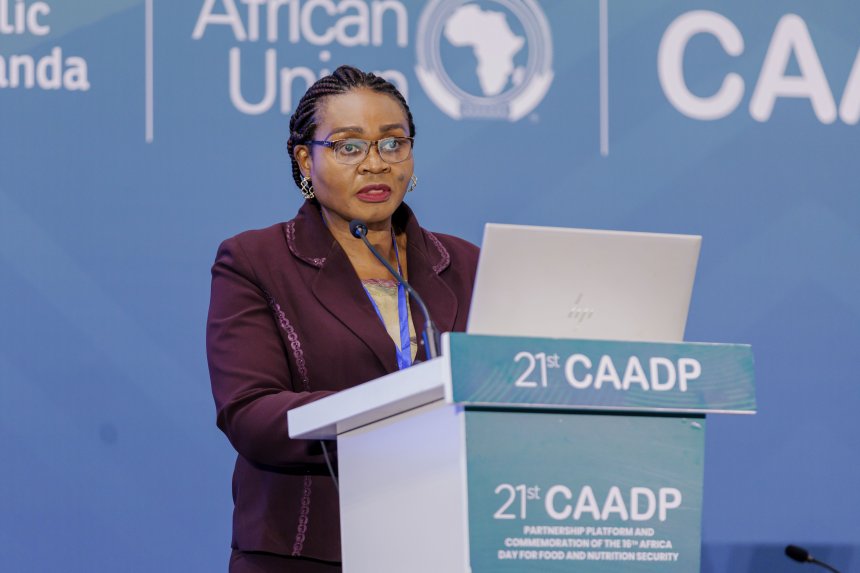 Dr. Janet Edeme, Acting Head of Agriculture and Food Security Division in African Union Commission
Dr. Janet Edeme, Acting Head of Agriculture and Food Security Division in African Union Commission
